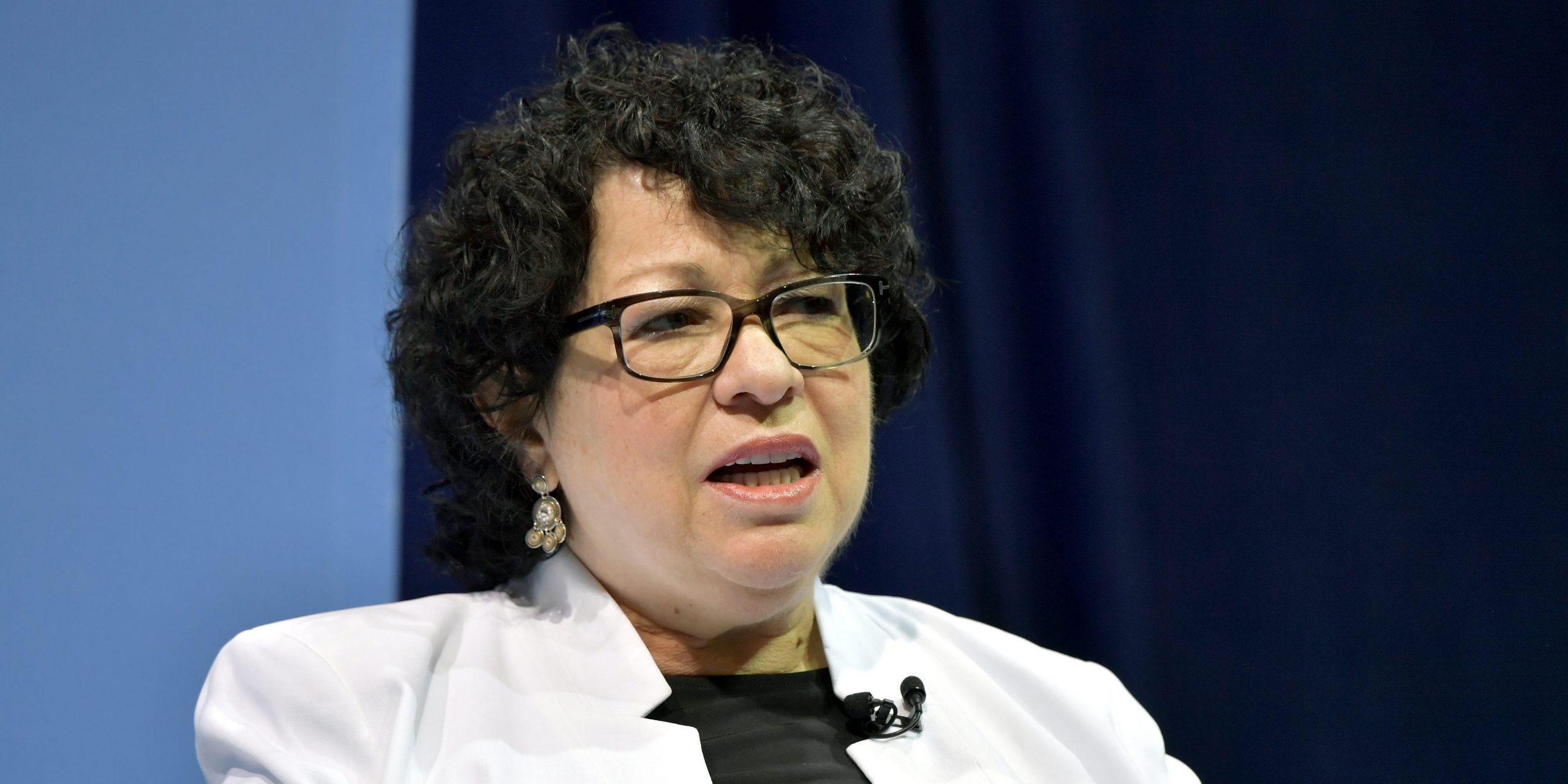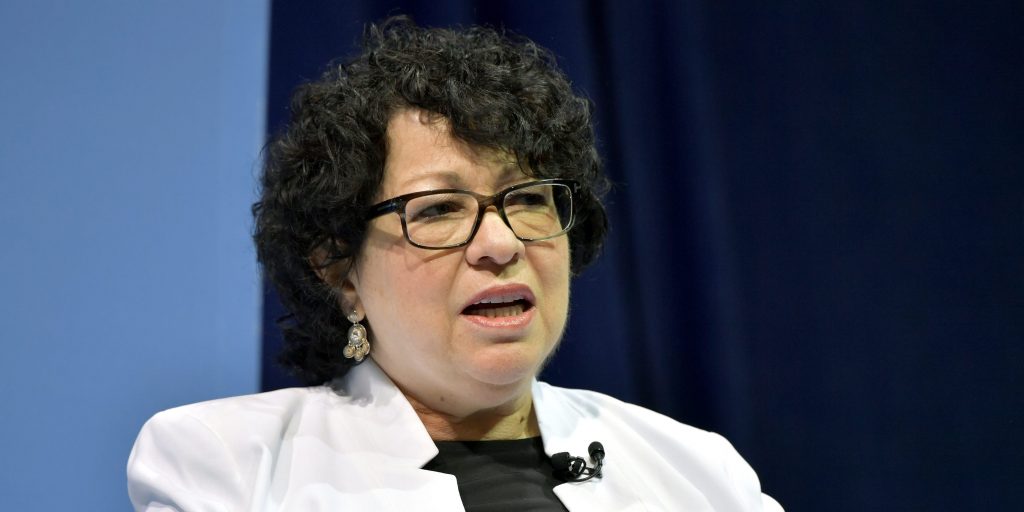
Paul Marotta/Getty Images
- Justice Sonia Sotomayor said on Wednesday that "there's going to be a lot of disappointments in the law."
- Sotomayor pointed to a recently enacted Texas law that bans abortions after six weeks of pregnancy.
- "I can't change Texas's law, but you can," she told an audience at a virtual summit.
- See more stories on Insider's business page.
Justice Sonia Sotomayor, who's served on the Supreme Court for 12 years, told law students in a speech on Wednesday that working in the field does not come without disappointment.
"There's going to be a lot of disappointments in the law, a huge amount," Sotomayor said virtually at a diversity summit hosted by the American Bar Association, according to the Washington Post and CNN.
"As you study cases and look at outcomes you disagree with, it can get frustrating," she continued, per The Post. "Look at me, look at my dissents."
Sotomayor's comments come on the heels of a strongly worded dissent she wrote earlier this month, in which she criticized her fellow justices who refused to block a Texas law that bans abortions after six weeks of pregnancy.
"The Court's order is stunning," she wrote of the controversial 5-4 vote, adding that the Texas statute is "flagrantly unconstitutional" and "a majority of Justices have opted to bury their heads in the sand."
On Wednesday, Sotomayor encouraged the audience to stand up to laws they take issue with, such as the Texas law.
"I can't change Texas's law, but you can," she said, The Post reported. "You can, and everyone else who may or may not like it can go out there and be lobbying forces in changing laws that you don't like."
"But the point is, there are going to be a lot of things you don't like," Sotomayor added, per The Post.
The associate justice's remarks also come just days before a blockbuster Supreme Court term begins on Monday.
The court will consider a range of high-profile cases, including one on abortion. That case, Dobbs v. Jackson Women's Health Organization, could threaten the constitutional right to an abortion guaranteed in the court's 1973 landmark Roe v. Wade ruling.

